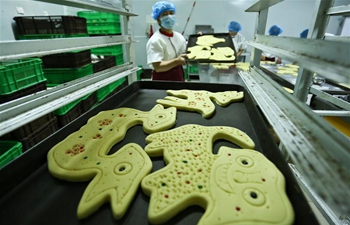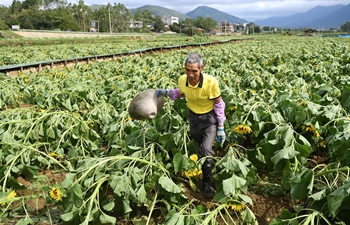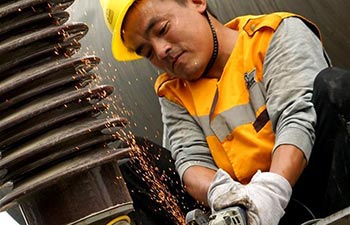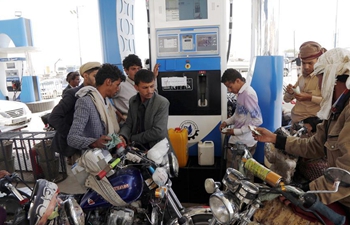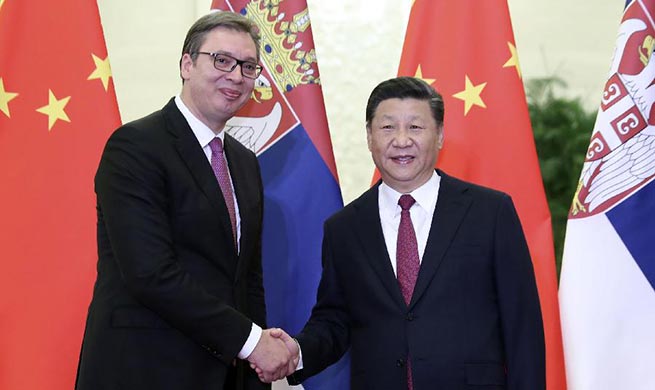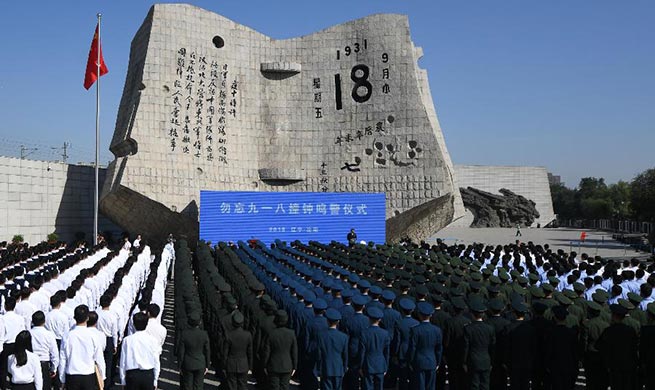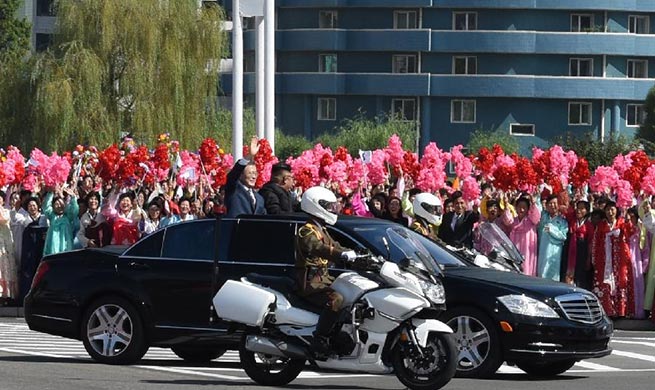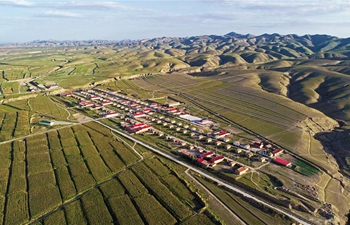BERLIN, Sept. 18 (Xinhua) -- German coal commission should take the significant rise in price levels of the EU Emissions Trading System (EU ETS) into account when considering additional, unilateral action against German coal-fired power plants, said energy expert Marc Oliver Bettzuege, director of the Institute of Energy Economics at the University of Cologne (EWI).
"The rise in the price of CO2-certificates in Europe is important new information for the commission on the future role of coal in Germany, too," said Bettzuege in a recent interview with Xinhua.
The phase-out of coal energy is one of the biggest challenges for the German energy sector. For that reason, the so-called "coal commission" is currently discussing the timing and conditions for opting out of this traditional energy generation.
The commission, consisting of members from economy, industry, environmental associations and regional representatives, has been meeting in Berlin on Tuesday again.
The price for CO2 certificates has risen significantly over the past year. On Tuesday, the price for a certificate that allows companies to emit one ton of carbon dioxide was 20.70 euros (24.19 U.S. dollars), almost three times more than one year ago. The price for one certificate reached a record high of 24.84 euros on Sept. 10 2018.
CO2 certificates have been introduced by the European emissions trading system in 2005. About 11,000 power plants and factories in 31 countries are registered in the system which covers around 45 percent of the EU's greenhouse gas emissions.
"The more relevant factor for understanding price formation in the EU ETS is not the annual allocation of certificates, but the total quantity of allowances issued from now into the future," explained Bettzuege. "This is due to the fact that certificates issued at a certain point in time remain valid in the following years. Therefore, it is possible for market participants to bank them."
Companies that emit less CO2 than originally allocated, can sell the surplus of their allowances. Thereby, the EU provides companies with a financial incentive to reduce their CO2 emissions. Currently, the EU is reducing the amount of carbon allowances available by 1.74 percent per year to increase the pressure on companies to gradually lower their greenhouse gas emissions.
Changes in expectations about the long-term supply of certificates are critical for determining prices in the market, according to Bettzuege. The energy expert therefore considered recent political action indicating a reduction of this long-term supply to be a major reason for the current price development. "The recent increase in the EU ETS price has coincided with the adoption of the ETS reform package by the EU and the member states."
The European Union plans that CO2 certificates which were not sold at auctions, will be transferred into a so called Market Stability Reserve in order to make the market more resistant to turbulences. The EU aims to take 24 percent of certificates in circulation out of the market between 2019 and 2023, thus seeking to reduce the oversupply of carbon allowances.
In Germany, 1,833 facilities were legally obliged to participate in emissions trading in 2017, of which 942 are from the energy generating sector and 891 from industries. Across all sectors, these facilities emitted 438 million tons of CO2, with energy plants contributing almost three-quarters of total emissions.
"In Germany, such political topics are often only considered at a national level, although they need to be suitably embedded into the overarching European framework," said Bettzuege. For example, the investment support given to renewable energy sources or the managing of the coal phase-out in Germany would often be discussed through "German glasses" only. "We at EWI have been pointing to the vital importance of Germany applying a coherent European perspective for years," added Bettzuege.
